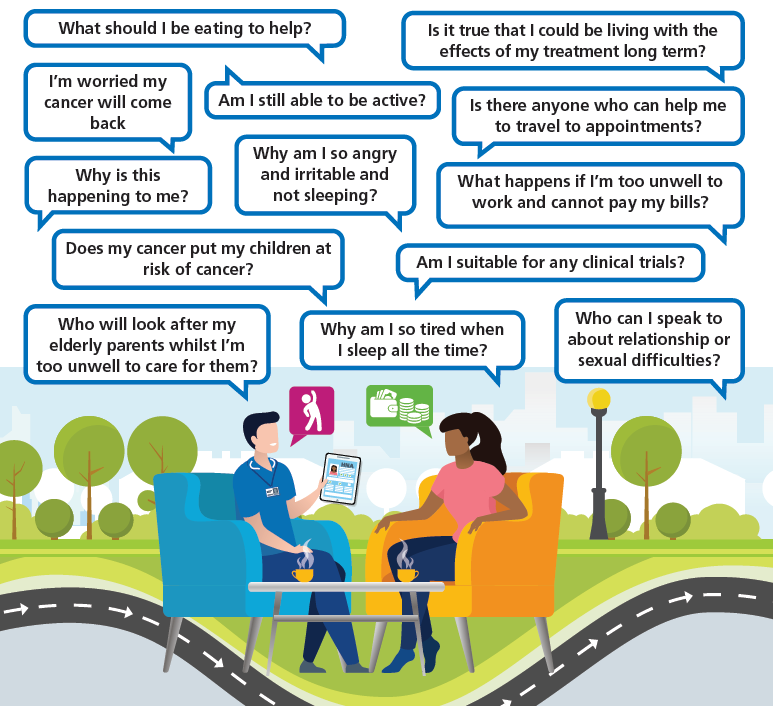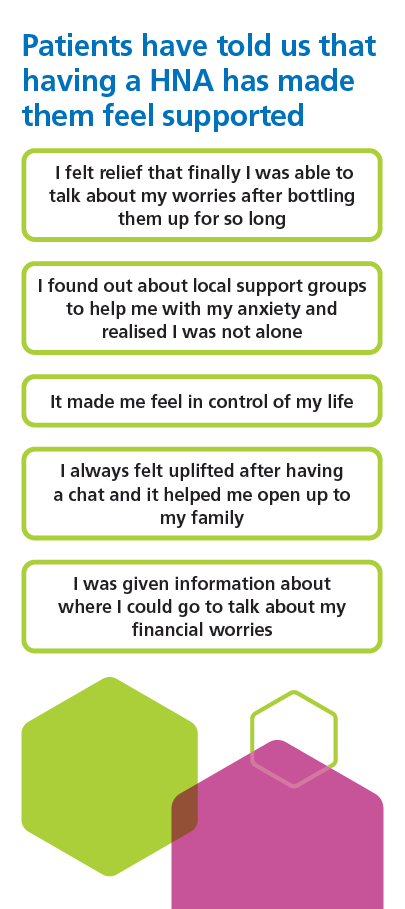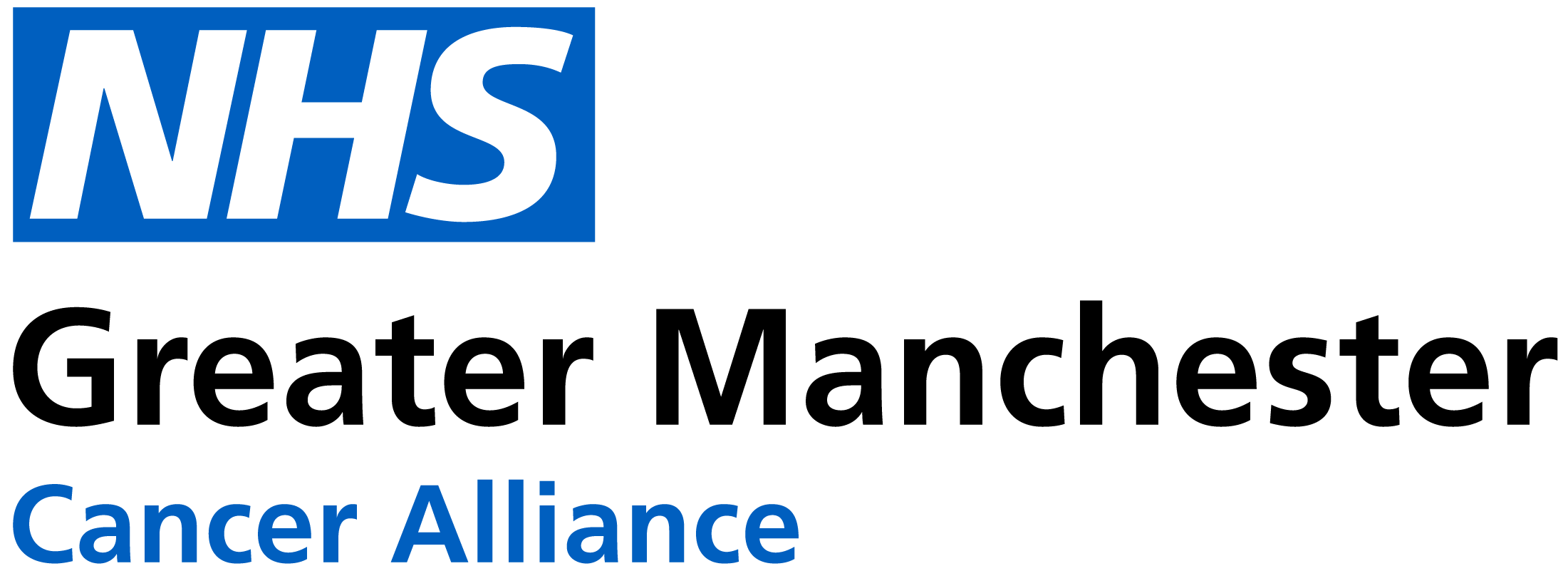The Greater Manchester Cancer Alliance is committed to ensuring good quality holistic needs assessments and care plans are available to all cancer patients and will support Trusts to accurately report activity through COSD as required nationally.
You can talk to your team about anything;
it doesn’t just need to be about your treatment

Holistic Needs Assessments
Patients are offered an assessment of their needs with a clinical nurse specialist (CNS) or support worker. This is called a holistic needs assessment (HNA).
The assessment is called holistic because the patient can talk about any area of their life and how cancer affects them and their family and carers.
A HNA gives the patient a chance to talk about their needs and for their care team find out what really matters to them. The patient’s needs might be physical, practical, emotional or social. The HNA should help them think about and prioritise what matters to them, and what they need support with.
A patient should be offered a HNA soon after their diagnosis and at other important times, such as at the end of a period (phase) of treatment.

Please watch the video alongside why explains what can be expected from a Holistic Needs Assessment offered to people who are diagnosed with cancer. A Holistic Needs Assessment (HNA) is given after diagnosis and at key points in treatment. It helps you discuss and prioritise physical, emotional, practical, and social needs to create a personalised care and support plan with your clinical nurse specialist or support worker. Support plans can be updated whenever your needs change. View the animated video linked and/or visit the website for more information. This resource was produced collaboratively by colleagues at the Northern Care Alliance and hosted centrally by South East London Cancer Alliance. HNA explained: Personalised Care and Support Planning for people diagnosed with cancer – Cancer Care Map
Personalised care and Support Plans (PCSP)
- A Personalised Care and Support Plan (PCSP)is developed after the Holistic Needs Assessment to keep a record of conversations, decisions and agreed outcomes
- A PCSP ensures people’s physical, practical, emotional and social needs are identified and addressed at the earliest opportunity.
- A CNS/Support worker will not have all the answers to patients questions but can signpost to organisations that do. These should be detailed in the plan.
- The plan should be reviewed over time
Document Library
Here’s a video by Macmillan which explains the benefits of HNAs for both the patient and care team

